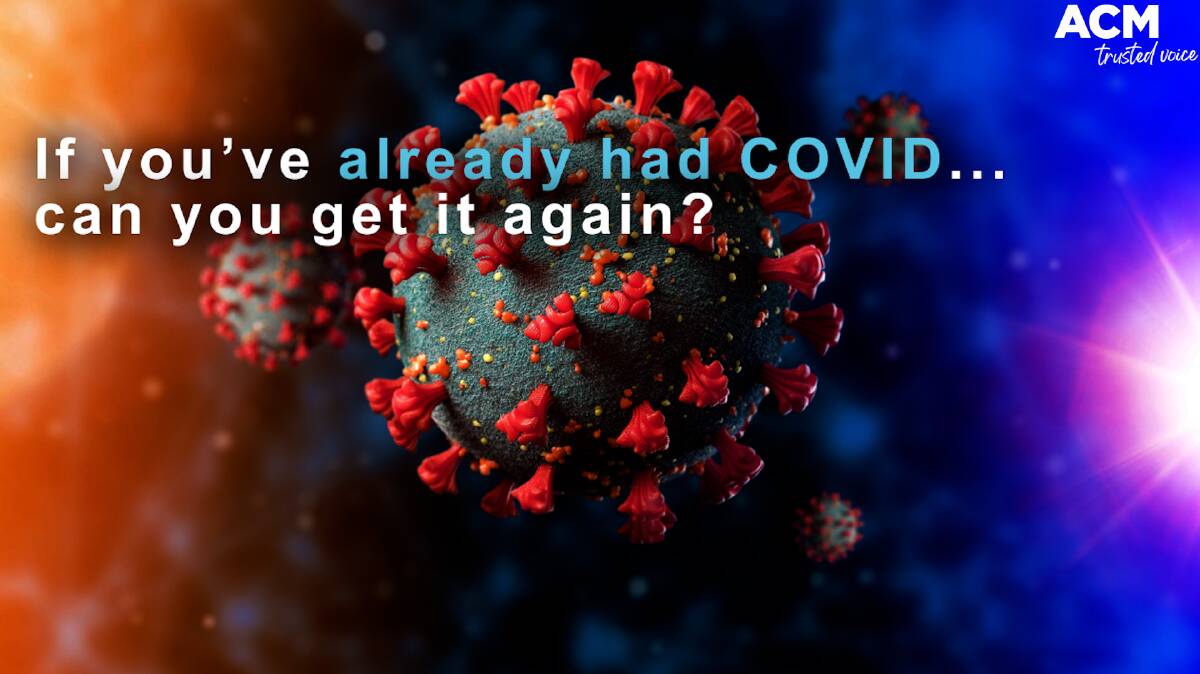Since the pandemic began in 2020, Australia has recorded more than seven million cases of the disease.
So roughly 28 per cent of the nation has at some point had COVID-19.
The question for that sizable group of society is, are they safe from the virus forever now? Or is there a chance they could fall victim to the dreaded COVID a second time?
Well, that depends on a couple of different environmental and genetic factors.
The rate of reinfection might be hard to determine, according to Deakin University epidemiology associate professor Hassan Vally.
"I think it is quite difficult [to know], especially given the stage of the pandemic that we're in now, where we're not testing in the way that we were testing earlier on in the pandemic.
"And so, you know, there are also people who may be having reinfections that don't even know that they're reinfections because the original infection was asymptomatic."
To understand the risk of reinfection, it's necessary to first look inside the body to understand how it responds to a virus.
When invaded, the body produces B-cells and T-cells. These second types send out antibodies that bind to the virus and neutralise the infection.
If the virus bypasses the antibodies, T-cells destroy any cells that have been invaded by the virus.

When the virus tries to infiltrate a second time soon after, your system is awake and ready to fight the infection.
Most often at this time, you won't be re-infected
But over time, your B-cells and T-cells are switched off. Your body does not produce as many because it does not need them as readily.
They leave behind memory B-cells and T-cells that are ready to mobilise to rapidly-produce neutralising antibodies should the virus return to your system.
These memory B-cells and T-cells are not as quick, and so you may be vulnerable to reinfection.
Related:
Reinfection has been known to happen as little as 20 days after recovery.
Back in January 2022, one very unlucky 31-year-old healthcare worker from Spain managed to test positive for two separate COVID-19 infections in that timeframe.
Her first infection had been asymptomatic, but her second came with a cough, fever, and general cold-like symptoms.
To date, that's the shortest interval of reinfection so far recorded. And it happened because she tested positive for two different variants.
The first time she had the virus, it was the Delta variant. The second time, it was the Omicron variant.
And this is a very important distinction.
A study by the Imperial College London reported that Omicron is five times more likely to cause reinfection than Delta.
If you've recovered from the Delta variant, your memory B-cells and T-cells are well-attuned to recognise that genetic code.
But, if you are then infected with the Omicron variant, your immune response is slower.
It's as though the virus is wearing a disguise so that it can slip through your defenses.
"I think we've always known or we've known right from the very beginning, back in 2020, that reinfection was possible," Professor Vally said.
"But certainly with the Omicron variant, we're seeing a greater likelihood of being reinfected.
"And I think, you know, there's a lot of possible reasons for that, but most likely it's to do with the fact that Omicron doesn't elicit as strong and as robust an immune response as some of the other strains and the reasons for that could also be due to the characteristics of the crown in that it infects the upper airways.
"And we know that that leads to a less robust immune response. And we also know it's less severe than some of the other variants. And so that may also influence the strength of the immune response that's elicited."
Related:
How long you're safe from reinfection depends on how quickly your body can produce neutralising antibodies.
A study from Yale University found that four months after your initial infection, you're chance of reinfection jumps to 5 per cent. After 17 months, that is projected to be 50 per cent.
A similar thing happens with the waning of the vaccine over time.
If you do end up getting reinfected, and it is with Omicron, it's likely that it will be far less severe than the first time you had the virus.
The evidence for that likelihood played out in Spain and Qatar, during the countries' respective peaks.
During the first wave of the pandemic in Qatar, in March 2020, up to 40 per cent of the population had contracted COVID-19.
Between January and May 2021, the country had two new waves back-to-back, this time of the Alpha and Beta variants.
More than 350,000 positive cases were reported between January and May 2021. But just over 1,000 of these were identified as reinfections, which is less than 0.4 per cent of the cases.
Of those identified as re-infection, which was admittedly a small sample size, just four ended up in hospital. None were in ICU and none died.
So, it was found that there was a 90 per cent chance of having a much less severe reaction to the virus.
Similarly, in the two weeks from December 23 to January 5, 2022, Spain recorded 20,890 cases which more than doubled the country's recorded cases since the start of the pandemic.
About 10-15 per cent of these cases were estimated to be reinfections.
Most were Omicron cases, and fortunately, the country recorded much lower rates of hospitalisation and death.
As with most issues around the COVID-19 pandemic, a lot is unknown. Whether you will or won't be reinfected with the virus is something that just cannot be predicted.
But at the very least, you should be acting with caution as if you were definitely at risk of contracting the virus a second time.
"This is one of the many challenges we're sort of facing in trying to understand this virus and how it affects us," Professor Vally said.


